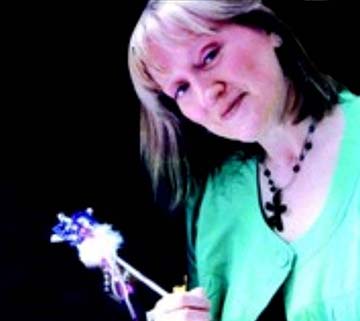A good death is important to everyone involved
IRELAND – We tend to judge things by their endings. You can have a bad day, but if it ends well, you go to sleep happy. In fact it’s scientifically proven, in studies about pain, that people’s memories of things and the taste an experience leaves in your mouth are far more heavily influenced by the endings.
For example, you can have a wonderful life but if you have a bad death, well, it pretty much spoils everything, doesn’t it? And everybody is left with bad memories, and those bad memories of your death can overshadow everything else that happened in your life. Without getting too metaphysical, whether we go somewhere or not after our death, you can only imagine how it feels if your last moments of consciousness on this earth are upsetting and troubled, lonely or regretful. It’s not how any of us wants to go.
Humanity has long recognised the importance of a good death, and that is why we have always worked so hard to build comforting rituals around death. A good death is important to everyone involved; those left behind, and not least, the person dying.
The Hospice movement and its advocates talk about something called ‘the dying role’. Indeed, the dying role is often characterised in terms of a play or a drama where everyone has a part to play, and the person who is dying is the central character. The setting is important for example, ideally at home surrounded by loved ones, in a place that is ideally not too sterile and hospital-like. This is important in that it helps to move the person from the so-called sickness role to the dying role. The sickness role is about medicine and trying to make someone better generally. The dying role is more about enhancing the quality of the life that remains, rather than the quantity. Even costumes are important in the death drama, with the dying person endeavouring to wear their own clothes as long as possible, rather than hospital gowns or other vestments of illness.
Of course, the basics of this drama are the elimination of pain and discomfort, but there’s a lot more to it than that. The elimination of pain allows the dying person, and everyone else, to then focus on the important, higher-level issues.
The higher-level issues are mainly about allowing the dying person to find some meaning in the situation. Well-known palliative-care doctor Ira Byock points out in his book Dying Well, that a good death, done well, with all the actors playing their parts right, can be as profound, intimate and precious as the miracle of birth. This might be hard to see from our perspective now, but when you are facing death, and it is even more inevitable than it is for you now, you can see how a good death would seem like the most important thing in the world.
From where we stand, for example, death can seem like a hopeless situation. One of the functions of the dying role is to give hope in this apparently hopeless situation by recalibrating what a person can realistically hope for. So obviously they are not going to get better, but perhaps they would like to try and live long enough for someone’s wedding, perhaps they might simply hope for a good death. The point is that death need not be hopeless and the dying person need not be devoid of hope. Other important aspects of the dying role can be simple things like saying goodbyes, having reconciliations, and maybe trying to get things in order for after you die. This can extend even to trying to help others to cope with the aftermath of your impending death.
Strangely, the only person I have ever had an in-depth conversation with about his own impending death was a 16-year-old. You will remember him. Donal Walsh. It is really only recently that I began to understand so many things about what Donal was doing towards the end of his life. He was fulfilling his dying role. He had realistic hope, not in the sense that he thought he would get better, but in the sense that he was hoping for a painless death.
When I asked him if he had any ambitions left, a bucket list maybe, not to suffer too much in his final weeks was his only one. He was also spending a lot of time preparing his family and friends for his death. And even his anti-suicide message was a way for him to invest his dying with meaning and purpose. It was a textbook dying role, and as far as I know it helped Donal and his family greatly and he had as good a death as a 16-year-old boy can have. I would imagine Donal’s death was as profound and intimate and precious as it could have been for him and his family, and I think that is something that is a huge comfort to them now.
Contrast all that with the death of Bernadette Forde, who sat alone in her apartment and recorded a suicide note on a Dictaphone she had bought especially for that purpose. Bernadette had to record her final words because the MS that had gradually crippled her and made her life unbearable for the previous decade had rendered her unable to write a legible note.


Leave a Comment
You must be logged in to post a comment.